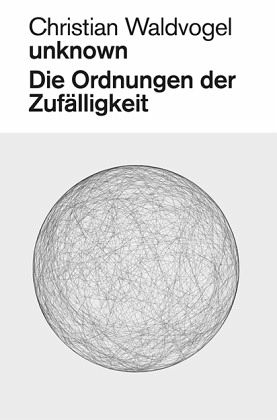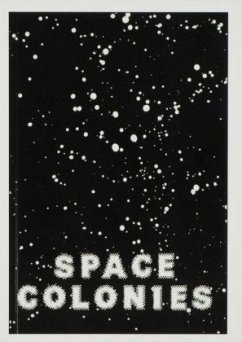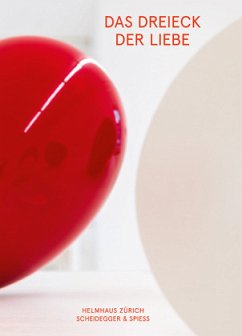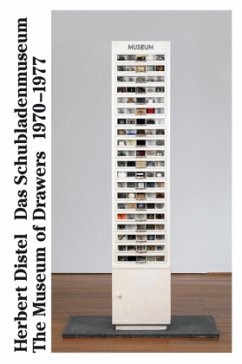
Christian Waldvogel unknown
Die Ordnungen der Zufälligkeit. Katalog zur Ausstellung im Helmhaus, Zürich, 2014
Herausgegeben: Helmhaus Zürich;Mitarbeit: Vera, Jean-Pierre de; Van Loon, Jack; Waldvogel, Christian; de Vera, Jean-Pierre
Versandkostenfrei!
Versandfertig in 6-10 Tagen
25,00 €
inkl. MwSt.

PAYBACK Punkte
0 °P sammeln!
Der Künstler Christian Waldvogel beschäftigt sich in seinen Installationen immer wieder mit Weltraum und Raumzeit. Dieses Buch präsentiert eine dreiteilige Installation, die der Künstler im Zürcher Helmhaus einrichtete. Schmelzende Kerzen liessen durch Zufallsbewegungen kugelförmige Planeten entstehen. In einer auf rund 150 Quadratmetern verteilten Nährflüssigkeit begann sich während der Dauer der Ausstellung erstes Leben zu regen, und zum Schluss setzte der Künstler die Planeten in ein selbst entwickeltes Planetensystem ein.Für die Publikation wird diese Erzählung von der möglich...
Der Künstler Christian Waldvogel beschäftigt sich in seinen Installationen immer wieder mit Weltraum und Raumzeit. Dieses Buch präsentiert eine dreiteilige Installation, die der Künstler im Zürcher Helmhaus einrichtete. Schmelzende Kerzen liessen durch Zufallsbewegungen kugelförmige Planeten entstehen. In einer auf rund 150 Quadratmetern verteilten Nährflüssigkeit begann sich während der Dauer der Ausstellung erstes Leben zu regen, und zum Schluss setzte der Künstler die Planeten in ein selbst entwickeltes Planetensystem ein.
Für die Publikation wird diese Erzählung von der möglichen Entstehung der Gestirne und dem Aufkeimen von erstem Leben substanziell mit Text und Bild erweitert. Der Künstler befragt in Gesprächen die jeweiligen Spezialisten zu dieser universellen Narration - und macht so aus ungewohnter Perspektive nachvollziehbar, wie eine Erde, wie wir sie bewohnen, entstanden sein könnte.
Das Buch erscheint anlässlich der Ausstellung Unknown im Helmhaus Zürich.
Für die Publikation wird diese Erzählung von der möglichen Entstehung der Gestirne und dem Aufkeimen von erstem Leben substanziell mit Text und Bild erweitert. Der Künstler befragt in Gesprächen die jeweiligen Spezialisten zu dieser universellen Narration - und macht so aus ungewohnter Perspektive nachvollziehbar, wie eine Erde, wie wir sie bewohnen, entstanden sein könnte.
Das Buch erscheint anlässlich der Ausstellung Unknown im Helmhaus Zürich.
Dieser Artikel kann nur an eine deutsche Lieferadresse ausgeliefert werden.












